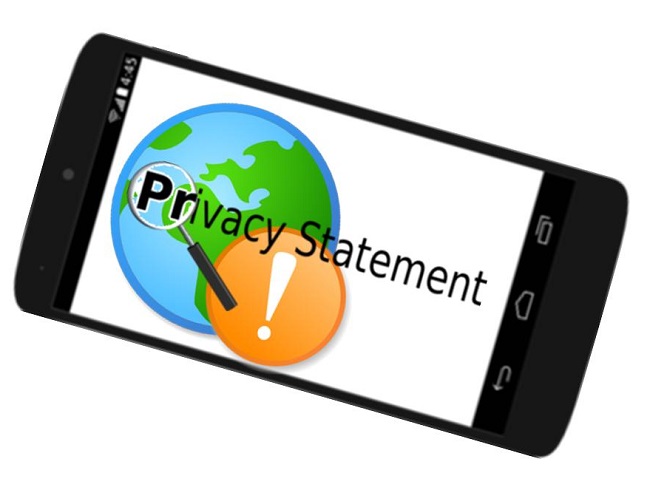The ride share service mobile app has just confirmed that its update includes critical changes to its privacy policy.
The leading company in ride share services, Uber, has now announced that it has updated the privacy policy of its app in order to improve the mobile tracking that it is capable of achieving and, therefore, enhance its accuracy.
There are a number of strong changes that have taken place to make the service more efficient and enjoyable.
According to the announcement from Uber, these mobile tracking improvements should benefit both the drivers and the passengers, alike. According to a blog posted by the company in advance of the changes, “Our riders and driver partners will start receiving e-mails in the next few days about the new Privacy Statements.” It did go on to say that it will be going to great lengths to ensure that it is guaranteeing the privacy of its users. That said, it pointed out that geolocation will become central to the service.
Mobile tracking through geolocation technology is the largest change being made to the Uber platform.
 The announcement by Uber explained that the mobile app would request access to the location of the rider while the app is open in the background on the device. That way, it will make it possible for drivers to be able to locate their customers more quickly and conveniently. Overall, using geolocation technology as a part of the Uber app means that drivers will spend less time trying to find riders, and riders will spend less time waiting for their cars to pick them up.
The announcement by Uber explained that the mobile app would request access to the location of the rider while the app is open in the background on the device. That way, it will make it possible for drivers to be able to locate their customers more quickly and conveniently. Overall, using geolocation technology as a part of the Uber app means that drivers will spend less time trying to find riders, and riders will spend less time waiting for their cars to pick them up.
The company also added that “In addition, these changes would allow Uber to launch new promotional features that use contacts — for example the ability to send special offers to riders’ friends or family. In either case, users will be in control: they will be able to choose whether to share the data with Uber.”
The changes to the mobile tracking portion of the privacy policy and geolocation features of the app will become effective on July 15th, said the announcement. What has yet to be seen is how many people will be interested in using the feature.
BWild |
September 2, 2014
Retailers now have new regulations to which they must adhere with location based marketing.
When it comes to mobile marketing, geolocation has provided advertisers with an unparalleled opportunity to understand their customers and communicate with them at the perfect moment in the shopping experience.
Location based marketing does involve the collection of a customer’s position, of which a privacy watchdog is highly aware.
In France, a privacy watchdog has looked into the use of geolocation technology as a marketing method and has now implemented limitations for retailers and tracking companies with regards to what they are permitted to do. The goal of these restrictions is to help to protect the privacy of smartphone carrying customers. While the Commission National de l’Informatique et des Libertés (CNIL) says that it is trying to keep private data safe, at the same time, many French retailers now feel as though they have had all of their opportunity for this technology cut off.
The geolocation rules that have been drafted by the CNIL provide strict guidelines regarding what can be tracked.
 Some retailers feel that their ability to use location based marketing through geolocation has been nullified by the CNIL rules. The idea behind this type of mobile marketing is to track the movement of consumers throughout a brick and mortar location, or to know when a customer has approached a store so that advertising and promotions can be sent to them at the moment that they are most receptive to information about deals, opportunities, products, or brands.
Some retailers feel that their ability to use location based marketing through geolocation has been nullified by the CNIL rules. The idea behind this type of mobile marketing is to track the movement of consumers throughout a brick and mortar location, or to know when a customer has approached a store so that advertising and promotions can be sent to them at the moment that they are most receptive to information about deals, opportunities, products, or brands.
This type of tracking can also provide a mobile advertising firm or a retailer with the route that customers take while they are within a store as well as the length of time that they spend viewing a specific ad. With this information, advertisers can change their strategies to better appeal to consumers because the information and offers that they provide will be more interesting and relevant to the people who are actually shopping.
However, the privacy watchdog feels that the type of data collection through geolocation places the customer’s privacy and mobile security at risk. It has demanded that if these techniques are used by a retailer, that company must first report this to a special committee and also inform their customers of the techniques being used and the purposes for which the data is being collected. Moreover, as soon as the customer has left the store, any individual data must be deleted. No camera images can be collected and stored and none can be passed to a third party.
![]() The announcement by Uber explained that the mobile app would request access to the location of the rider while the app is open in the background on the device. That way, it will make it possible for drivers to be able to locate their customers more quickly and conveniently. Overall, using geolocation technology as a part of the Uber app means that drivers will spend less time trying to find riders, and riders will spend less time waiting for their cars to pick them up.
The announcement by Uber explained that the mobile app would request access to the location of the rider while the app is open in the background on the device. That way, it will make it possible for drivers to be able to locate their customers more quickly and conveniently. Overall, using geolocation technology as a part of the Uber app means that drivers will spend less time trying to find riders, and riders will spend less time waiting for their cars to pick them up.
 Some retailers feel that their ability to use location based marketing through geolocation has been nullified by the CNIL rules. The idea behind this type of mobile marketing is to track the movement of consumers throughout a brick and mortar location, or to know when a customer has approached a store so that advertising and promotions can be sent to them at the moment that they are most receptive to information about deals, opportunities, products, or brands.
Some retailers feel that their ability to use location based marketing through geolocation has been nullified by the CNIL rules. The idea behind this type of mobile marketing is to track the movement of consumers throughout a brick and mortar location, or to know when a customer has approached a store so that advertising and promotions can be sent to them at the moment that they are most receptive to information about deals, opportunities, products, or brands.